Last updated on May 11th, 2025 at 02:45 pm
In a world awash with information, nonfiction remains our anchor to reality. It interprets science, history, psychology, politics, and lived experience with the precision of fact and the depth of truth. From soul-stirring memoirs to intellectual manifestos, the 100 Best Nonfiction Books of All Time are not just educational—they’re transformative. These works have stirred revolutions, sparked introspection, and given voice to the marginalized.
Each book in this list, thoughtfully curated and ranked, embodies what it means to engage with the real world through literature. Whether you are a curious newcomer or a seasoned reader, these Top-Rated nonfiction works are indispensable.
100. Julie & Julia by Julie Powell

Julie Powell’s Julie & Julia is a celebration of persistence, passion, and the chaotic beauty of self-reinvention.
This memoir bridges generations by chronicling the author’s decision to cook all 524 recipes in Julia Child’s Mastering the Art of French Cooking—in a single year. As Powell wrestles with lobster dismemberment and culinary breakdowns in her modest New York kitchen, we see more than a cooking journey; we witness a woman reclaiming her identity from the abyss of modern ennui.
This witty, soul-baring story touches deeply on themes of creativity, modern womanhood, and the hunger for purpose. In a world brimming with disconnection, Julie & Julia reminds us that ambition—even culinary—can be revolutionary. It belongs firmly in the canon of the most read nonfiction books of All Time.
99. No Logo by Naomi Klein
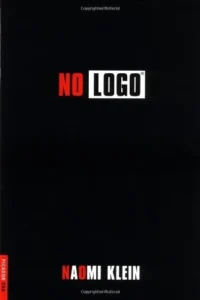
No Logo is not just a book—it’s a battle cry. Written at the turn of the millennium, Naomi Klein’s investigative manifesto is one of the Most Widely Recommended Nonfiction Books on corporate globalization and consumer culture.
She dismantles the glossy facade of global brands to expose a darker underbelly of exploitation, sweatshop labor, and cultural homogenization.
Klein gives readers a front-row seat to the rise of anti-corporate activism, the ethical cost of brand obsession, and the erosion of public space. Through piercing research and impassioned prose, No Logo paved the way for today’s socially conscious consumerism and continues to resonate in an age of fast fashion and Big Tech dominance.
98. Tracks by Robyn Davidson
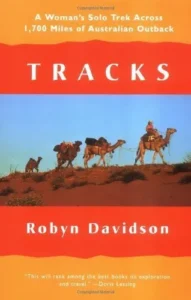
Few memoirs depict inner and outer journeys with as much raw beauty as Tracks. In 1977, Robyn Davidson trekked 1,700 miles across the unforgiving Australian outback—alone except for four camels and a dog.
What begins as a physical ordeal becomes a profound meditation on freedom, solitude, and the cultural clash between white Australians and Aboriginal peoples.
Davidson’s writing is visceral and poetic, capturing not just the landscape but her psychological metamorphosis. A feminist classic and an ode to independence, Tracks is essential reading among the Top-Rated nonfiction books, especially for those craving authenticity and wildness in an overly structured world.
97. World Travel: An Irreverent Guide by Anthony Bourdain
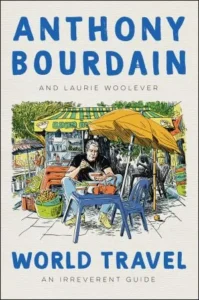
Published posthumously, World Travel is Bourdain at his most global, funny, and human.
With the help of his longtime assistant Laurie Woolever, this guide compiles Bourdain’s favorite spots—from Vietnam to Uruguay—and injects them with his unfiltered insights and unapologetic charm.
But this book is more than a travel guide; it’s a memorial to curiosity, a tribute to cultural respect, and a masterclass in storytelling. In an age of curated experiences, Bourdain’s brutally honest narratives remind us why travel matters—not for Instagram, but for empathy. No wonder it stands tall among the 100 Best nonfiction books for modern wanderers.
96. The Interpretation of Dreams by Sigmund Freud
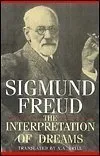
Love him or loathe him, Freud is unavoidable. The Interpretation of Dreams is arguably his most revolutionary text, where he proposes that dreams are windows into our unconscious minds, filled with symbols, desires, and repressed truths.
With meticulous analysis and provocative hypotheses, Freud lays the foundation for psychoanalysis.
Though some ideas have been challenged by modern neuroscience, the cultural impact of this work is undeniable. It’s a cornerstone of psychology and literature alike, making it one of the most read nonfiction books of All Time.
Reading Freud is like peering into the architecture of modern thought itself.
95. The Motorcycle Diaries by Che Guevara
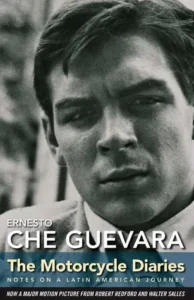
Before he became a revolutionary icon, Che was a young medical student on a dusty motorbike. The Motorcycle Diaries recounts his journey across Latin America, a trip that seeded the political awakening of one of the 20th century’s most polarizing figures.
But this memoir isn’t about ideology. It’s about landscapes, friendship, poverty, and realization. We witness Guevara’s transition from observer to activist, from carefree traveler to committed insurgent.
It’s a poetic, powerful read—one that earns its place on every list of Most Widely Recommended Nonfiction Books for its insight into how travel can transform belief.
94. Slouching Towards Bethlehem by Joan Didion
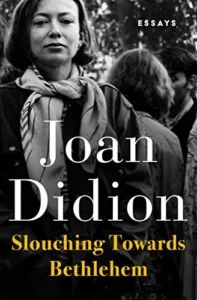
A masterpiece of literary journalism, Slouching Towards Bethlehem captures America at its most fractured and fascinating.
Joan Didion’s essays from the 1960s reveal a country spiraling through cultural upheaval, from the flower children of San Francisco to the existential disquiet of Los Angeles suburbia.
But it’s not just the events—it’s how Didion sees them. Her crystalline prose, tinged with melancholy and psychological acuity, makes even the mundane resonate. She doesn’t judge—she dissects.
And in doing so, she shows us ourselves. This book remains one of the Top-Rated nonfiction titles in modern American letters, especially for readers who seek elegant writing married to unflinching truth.
93. A Walk in the Woods by Bill Bryson
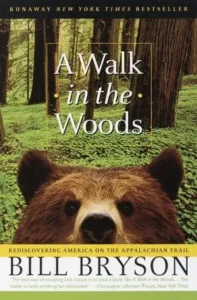
Equal parts hilarious and humbling, A Walk in the Woods chronicles Bill Bryson’s attempt to hike the Appalachian Trail. Alongside his hapless friend Katz, Bryson offers more than a travelogue—it’s a meditation on nature, aging, and the peculiarities of American culture.
Packed with historical tidbits and laugh-out-loud moments, Bryson balances deep respect for the wilderness with his signature wit. At its core, this is a story about reconnecting with the earth—and yourself.
As one of the most read nonfiction books of All Time, it has inspired countless readers to lace up their boots and rediscover the trail.
92. Birthday Letters by Ted Hughes

Though technically a poetry collection, Birthday Letters functions like a memoir—an intimate, posthumous dialogue with Sylvia Plath. Published 35 years after her death, these poems are Hughes’s raw reckoning with love, grief, guilt, and memory.
Each piece is a shard of a relationship shattered by tragedy and mythologized by the public. Here, we finally hear Hughes not as a stoic poet laureate, but as a broken man trying to tell his side of a story the world already thinks it knows.
Birthday Letters holds a unique place among the Most Widely Recommended Nonfiction Books, blurring the boundary between poetry and truth.
91. The Lost City of Z by David Grann
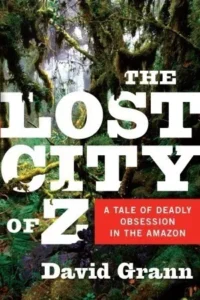
In The Lost City of Z, David Grann unearths the thrilling, mysterious, and ultimately tragic story of British explorer Percy Fawcett, who vanished in the Amazon jungle in 1925 while searching for a mythical city.
Combining archival research with his own treacherous journey into the rainforest, Grann crafts a gripping narrative that’s part biography, part adventure tale, and part detective story.
What makes this book unforgettable is its tension between obsession and discovery. Fawcett’s dream of a hidden civilization becomes a mirror reflecting the eternal human urge to find meaning in the unknown. It’s a staple in the 100 Best nonfiction books collection, especially for fans of exploration and history.
90. Breath: The New Science of a Lost Art by James Nestor
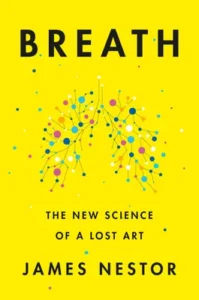
In a world increasingly addicted to shallow breathing and chronic stress, Breath arrives like a gust of clarity. Science journalist James Nestor dives deep into the history, science, and forgotten wisdom of breathing—yes, the very thing we do 25,000 times a day without thinking.
What he finds is startling: poor breathing habits are at the root of many modern ailments, from sleep apnea to anxiety. Through interviews, experiments, and ancient practices like pranayama and Tummo, Nestor makes a convincing, life-changing case for something we take for granted.
Among the Top-Rated nonfiction of the decade, this book doesn’t just change your mind—it changes your breath.
89. Letters to a Young Poet by Rainer Maria Rilke
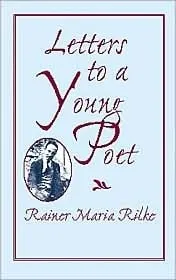
Few books feel as intimate and enduring as Rainer Maria Rilke’s Letters to a Young Poet. A collection of ten deeply personal letters written to an aspiring writer in the early 1900s, this short yet profound book is a love letter to solitude, creativity, and the long arc of becoming.
Rather than offering prescriptive advice, Rilke invites his reader—and all of us—to turn inward, to embrace uncertainty, and to trust the slow growth of the soul.
His reflections on art, anxiety, and authenticity have made this one of the Most Widely Recommended Nonfiction Books for artists, writers, and spiritual seekers for more than a century. It’s not just a book—it’s a balm for the overburdened heart.
88. Minor Feelings by Cathy Park Hong
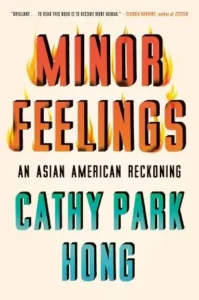
Cathy Park Hong’s Minor Feelings is a blisteringly intelligent, emotionally rich reckoning with race, identity, and the Asian American experience.
Through seven interlinked essays, Hong lays bare the “minor feelings” of shame, suspicion, and invisibility that come from living in a country that exoticizes and erases.
Her writing is confrontational but lyrical, analytic yet deeply personal. She blends memoir, cultural criticism, and political commentary to challenge the myth of the model minority and the silence imposed on non-white voices.
This book belongs firmly among the 100 Best nonfiction books, especially for readers looking to unlearn, reframe, and rise.
87. Why We Sleep by Matthew Walker
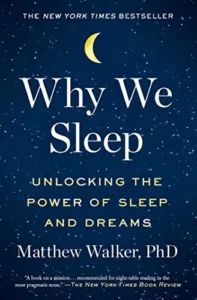
Why We Sleep is a revelatory exploration of the single most overlooked pillar of health: sleep. Neuroscientist and sleep expert Matthew Walker argues, with compelling clarity, that sleep is not a passive state—it’s the foundation for mental acuity, emotional stability, and physiological well-being. What makes this book extraordinary is its elegant fusion of hard science and practical urgency.
Walker methodically explains how sleep impacts everything from memory retention and immune function to creativity and longevity.
Yet, the heart of this work lies in its haunting warning: we are in the midst of a silent sleep-loss epidemic. Our culture glorifies burnout and undervalues rest, a fact that’s literally killing us. This isn’t just medical literature—it’s a societal wake-up call. Why We Sleep has rightly earned its place among the 100 Best Nonfiction Books and remains one of the Most Widely Recommended Nonfiction Books in health and science circles.
A vital read for our sleepless age, it urges readers not just to prioritize sleep—but to protect it as a sacred act of survival.
86. Men Explain Things to Me by Rebecca Solnit
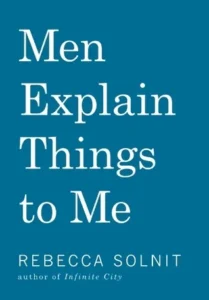
The term “mansplaining” may now be common parlance, but it was Rebecca Solnit who first put it into sharp literary form. Men Explain Things to Me is a razor-sharp collection of feminist essays that address the systemic silencing of women—through patronization, violence, and institutional blindness.
With wit and fury, Solnit unpacks how male authority operates not just in public spheres but in the private, persistent erasures of women’s voices. It’s a slender volume, but its impact is thunderous.
Among the most read nonfiction books of All Time in feminist literature, this is required reading for anyone seeking to understand power and the politics of being heard.
85. Bossypants by Tina Fey
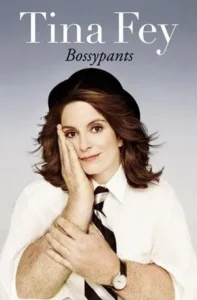
Witty, irreverent, and disarmingly insightful, Tina Fey’s Bossypants is not just a memoir—it’s a masterclass in confidence, comedy, and career resilience. With the same sharp timing she brings to 30 Rock and SNL, Fey recounts her rise from awkward suburban kid to iconic sketch writer and showrunner.
Behind the jokes are poignant reflections on motherhood, sexism in the workplace, and the unglamorous grind of creative ambition. What sets this apart in the 100 Best nonfiction books list is not just Fey’s celebrity, but her candor.
She’s not here to sell perfection—she’s here to tell the truth, one hilarious punchline at a time.
84. The Snow Leopard by Peter Matthiessen
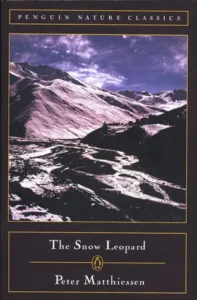
In The Snow Leopard, Peter Matthiessen embarks on a physical and spiritual expedition through the Himalayas in search of a rare snow leopard—and perhaps, something rarer: inner peace. Following the death of his wife, Matthiessen joins biologist George Schaller on a trek through Nepal.
Matthiessen’s prose is spare and elegant, revealing as much about the terrain of the human heart as the mountain passes he crosses. This is not merely a travelogue—it’s a modern sacred text. No list of Top-Rated nonfiction is complete without it. The Snow Leopard lingers with you, like a silent presence on a snowy ridge.
What follows isn’t just nature writing; it’s a meditation on grief, Buddhism, and the elusiveness of transcendence.
83. Kitchen Confidential by Anthony Bourdain
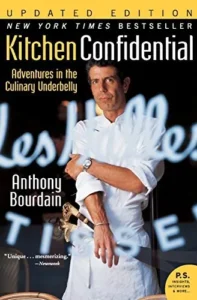
Before he was a global storyteller, Anthony Bourdain was a brash, hard-living chef with knives, scars, and secrets. Kitchen Confidential blew the lid off the pristine illusion of haute cuisine, exposing the grit, grind, and glory of the restaurant industry with shocking candor and devilish charm.
This book made Bourdain a cult hero—and for good reason. It’s hilariously raw, full of rogue wisdom, and a tribute to the misfits who keep your favorite restaurants running.
Still one of the Most Widely Recommended Nonfiction Books in food writing, Kitchen Confidential is a dish best devoured in one sitting.
82. Born a Crime by Trevor Noah
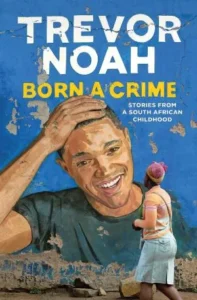
Trevor Noah’s memoir Born a Crime is a triumph of resilience, humor, and storytelling. Growing up as the mixed-race child of a Black Xhosa mother and a white Swiss father during apartheid-era South Africa, Noah was, quite literally, illegal.
His life was a series of calculated disappearances, whispered jokes, and fierce maternal love.
Noah’s comedic timing and linguistic dexterity bring joy and nuance to even the bleakest anecdotes. What elevates this memoir among the 100 Best nonfiction books is how it captures a nation’s brutality through a child’s gaze—without losing wit or warmth. It’s heartbreaking. It’s hopeful. It’s unforgettable.
81. The Body Keeps the Score by Bessel van der Kolk
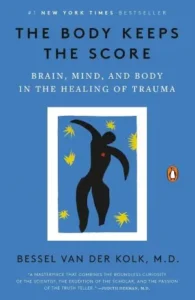
Trauma lives not only in memory but in the body—and that’s the foundational truth Bessel van der Kolk delivers in The Body Keeps the Score. Drawing on decades of research, clinical experience, and neuroscience, he explores how trauma rewires the brain, affects our physiology, and alters our sense of self.
More importantly, van der Kolk offers hope: through EMDR, yoga, neurofeedback, and re-integration, healing is possible.
Among the most read nonfiction books of All Time in the psychology field, this work is a lifeline for trauma survivors and a must-read for anyone seeking to understand the invisible wounds people carry.
80. Homo Deus by Yuval Noah Harari
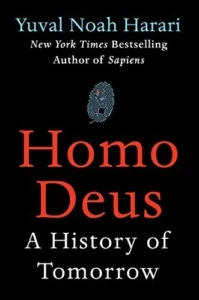
After the global success of Sapiens, Yuval Noah Harari turned his gaze forward in Homo Deus, contemplating what comes next for humanity.
As artificial intelligence, biotechnology, and dataism rise, Harari imagines a future where humans seek god-like power over life, evolution, and death itself.
Provocative and unsettling, the book asks: when we solve famine, war, and disease, what will we strive for? What does meaning look like in a post-human world? A philosopher disguised as a historian, Harari blends science, philosophy, and futurism to earn his spot among the Top-Rated nonfiction thinkers of the 21st century.
79. On Writing: A Memoir of the Craft by Stephen King
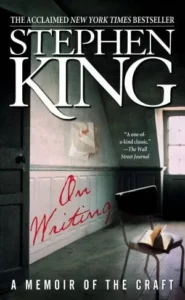
Part autobiography, part masterclass, On Writing is Stephen King’s love letter to the writing life. Known primarily for his fiction, King strips away the horror to reveal the bare bones of craft: discipline, honesty, and clarity.
Through a blend of personal anecdotes (including his near-fatal accident) and sharply practical advice, he makes writing feel both attainable and sacred.
What sets this book apart among the Most Widely Recommended Nonfiction Books is its generosity. King doesn’t gatekeep; he inspires. For aspiring writers and devoted readers alike, On Writing is a vital guide—and a poignant reminder that the story of becoming a writer is a story worth telling.
78. The Order of Time by Carlo Rovelli
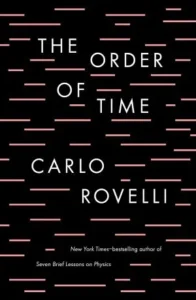
Time—it feels so obvious, so constant. But in The Order of Time, physicist Carlo Rovelli peels back the illusion and reveals time for what it is: relative, fragmented, and deeply mysterious. Drawing from quantum theory, thermodynamics, and philosophy, Rovelli writes with both intellectual rigor and poetic beauty.
This isn’t just a science book; it’s a meditation on existence. Time, he argues, doesn’t flow—it dissolves, bends, and behaves according to perspective.
Ranked high among the Top-Rated nonfiction in science, The Order of Time will stretch your mind and soften your grip on the “now.”
77. The Mismeasure of Man by Stephen Jay Gould
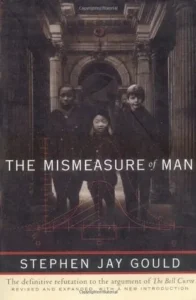
Stephen Jay Gould’s The Mismeasure of Man is a scorching indictment of scientific racism and the misuse of intelligence testing throughout history.
With wit, evidence, and moral urgency, Gould dismantles the idea that intelligence can be quantified into a single number or ranked across racial and social lines.
He doesn’t merely criticize—he educates. By exposing the biases that shaped phrenology, IQ testing, and eugenics, this book becomes essential reading in both science and ethics. Among the 100 Best nonfiction books, it’s a powerful reminder that data without context can be more dangerous than ignorance.
76. The Gene: An Intimate History by Siddhartha Mukherjee
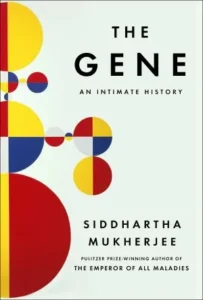
From the author of The Emperor of All Maladies comes another sweeping medical biography—this time, of the gene. Siddhartha Mukherjee’s The Gene weaves scientific history, personal family stories, and contemporary breakthroughs into a masterwork of medical storytelling.
Mukherjee charts the gene’s discovery, its manipulation, and its ethical dilemmas—from CRISPR to hereditary illness. He doesn’t shy away from the dark side: eugenics, designer babies, and the fragile line between therapy and tampering. As one of the most read nonfiction books of All Time in science, this is a deeply human story about what makes us… us.
75. How to Do Nothing: Resisting the Attention Economy by Jenny Odell
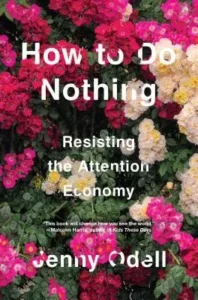
In a world obsessed with productivity and online visibility, Jenny Odell makes a revolutionary argument: reclaim your attention. How to Do Nothing is not a self-help guide—it’s a cultural manifesto.
Odell invites us to disengage from the commodification of our time and reconnect with nature, community, and genuine presence.
Her writing is lyrical, philosophical, and quietly rebellious. She challenges readers to resist the capitalist pressure to always be “on” and instead find meaning in being. Among the Top-Rated nonfiction of recent years, this book offers not just rest—but resistance.
74. Letters from a Stoic by Seneca
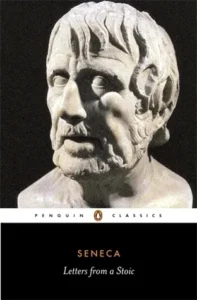
Lucius Annaeus Seneca, a Roman philosopher and statesman, may have lived in the first century, but his words feel like they were written yesterday. Letters from a Stoic is a timeless collection of moral essays that explore how to live well, act wisely, and endure adversity with grace.
In these letters to his friend Lucilius, Seneca speaks candidly about wealth, grief, anger, and the shortness of life. His Stoic philosophy is not cold detachment, but rather the cultivation of inner strength and ethical clarity in a chaotic world.
A foundational title among the Most Widely Recommended Nonfiction Books, this work is a spiritual guide for those seeking tranquility over turmoil.
73. Quiet: The Power of Introverts in a World That Can’t Stop Talking by Susan Cain
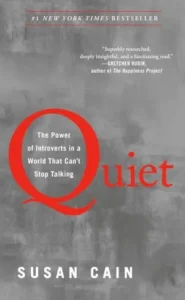
In Quiet, Susan Cain gives voice to the often-overlooked power of introversion in a society that prizes charisma and constant chatter.
Blending neuroscience, psychology, and personal narrative, she argues that introverts bring unique strengths—like deep focus, empathy, and creativity—that are essential to innovation and leadership.
Cain doesn’t ask the world to change who it is, but she demands recognition and space for those who thrive in silence. This book has sparked global conversations about temperament, workplace design, and education.
Firmly rooted in the Top-Rated nonfiction category, Quiet is a call for authenticity in a noisy world.
72. Mindset: The New Psychology of Success by Carol S. Dweck
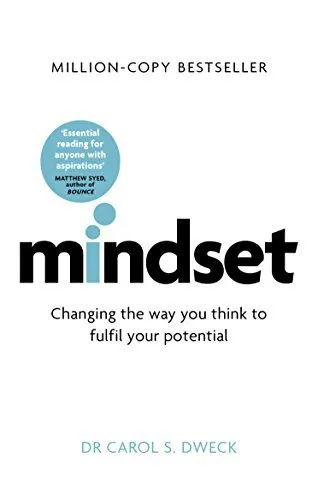
Psychologist Carol Dweck’s Mindset revolutionized how we understand success, intelligence, and learning.
Through decades of research, she uncovers the powerful distinction between a “fixed mindset” (believing abilities are static) and a “growth mindset” (believing they can be developed).
This simple shift in thinking has transformed education systems, business leadership, and parenting strategies worldwide. Among the most read nonfiction books of All Time, Mindset remains one of the most practical and empowering reads for anyone striving to improve themselves—or help others do the same.
71. The 7 Habits of Highly Effective People by Stephen R. Covey
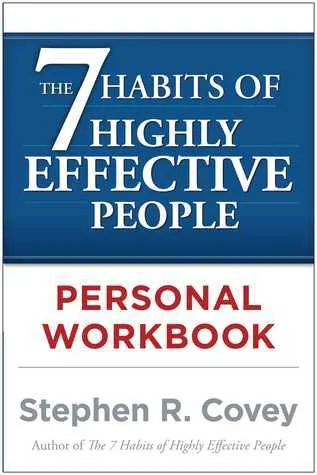
Stephen Covey’s The 7 Habits is more than just a productivity manual—it’s a philosophy of intentional living. With a blend of timeless principles and actionable frameworks, Covey presents a path to personal and professional effectiveness rooted in character, integrity, and vision.
From “Begin with the End in Mind” to “Sharpen the Saw,” these habits go beyond time management and into life mastery.
It’s no wonder this remains one of the Top-Rated nonfiction titles ever published—used by CEOs, students, and families alike to bring clarity and structure to their goals.
70. How to Win Friends and Influence People by Dale Carnegie
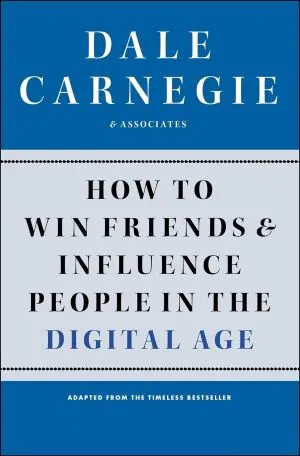
A cornerstone of self-help literature, Dale Carnegie’s How to Win Friends and Influence People has stood the test of time since its publication in 1936. Far from being manipulative, this guide is about empathy, active listening, and the art of human connection.
Carnegie teaches that success—whether personal or professional—comes from understanding others and making them feel valued. Its principles, like remembering names or admitting your faults, are deceptively simple but enduringly powerful.
Ranked among the 100 Best nonfiction books ever written, this book continues to transform lives across generations.
69. Atomic Habits by James Clear

Few books in recent memory have had as seismic an impact as Atomic Habits. James Clear distills years of behavioral science into one core truth: success isn’t the result of massive actions, but of tiny improvements made consistently over time.
Clear explains how habits are formed, how they’re broken, and how to rebuild them through a system of identity-based behavior. With real-world examples and elegant frameworks like the 1% rule, this book is both actionable and inspiring.
As one of the most read nonfiction books of All Time, Atomic Habits has become a blueprint for personal growth, productivity, and long-term change.
68. Flow: The Psychology of Optimal Experience by Mihaly Csikszentmihalyi
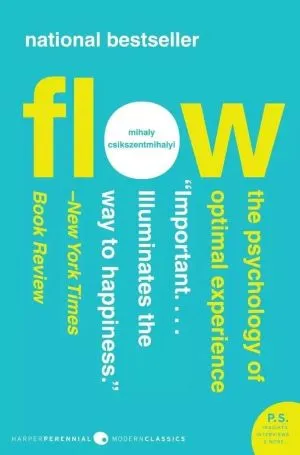
In Flow, psychologist Mihaly Csikszentmihalyi introduces the concept of “flow state”—that magical, immersive feeling when you are so engaged in a task that time disappears. Through decades of research, he shows how this mental zone is the key to happiness, creativity, and meaning.
Flow isn’t a luxury—it’s a necessity for a fulfilled life. Whether you’re an artist, athlete, engineer, or parent, this book offers profound insights into how we structure our attention and energy. Among the Top-Rated nonfiction in positive psychology, Flow remains essential for those seeking to transcend distraction and cultivate deep focus.
67. A Supposedly Fun Thing I’ll Never Do Again by David Foster Wallace
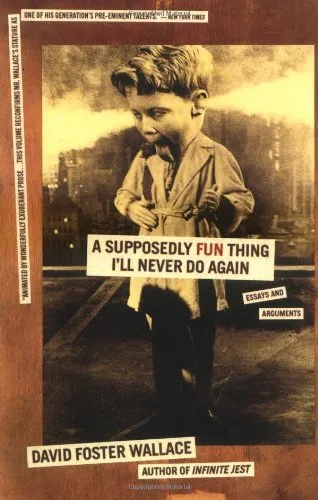
David Foster Wallace’s iconic collection of essays is witty, weird, and wildly observant.
In A Supposedly Fun Thing I’ll Never Do Again, Wallace tackles everything from tennis and linguistics to postmodern irony and the absurdity of luxury cruises.
What makes this book brilliant is Wallace’s ability to dissect American culture while also laying bare his own hyper-aware, anxious mind. His footnotes are legendary. His sentences are labyrinths.
Yet his insight is razor-sharp. Regarded as one of the Most Widely Recommended Nonfiction Books for lovers of literary nonfiction, Wallace’s essays are not just funny—they’re philosophically rich.
66. Consider the Lobster by David Foster Wallace
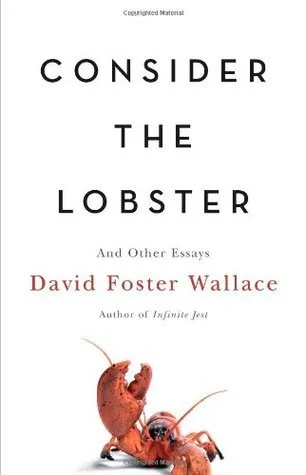
In this follow-up collection, Wallace dives even deeper into the contradictions and curiosities of contemporary life. Consider the Lobster includes essays on everything from a porn industry awards show to an ethical analysis of boiling lobsters alive.
Wallace’s unmatched intellect, empathy, and language acrobatics are on full display. He writes not to answer questions, but to ask better ones—and that’s why this book is so essential. It’s biting, hilarious, and disarmingly moral. Still among the 100 Best nonfiction books, Consider the Lobster reminds us that nonfiction can be as inventive, strange, and exhilarating as fiction.
65. On Writing Well by William Zinsser
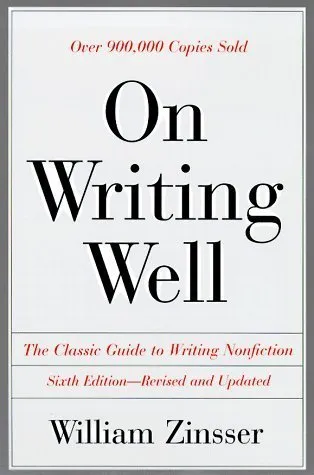
There’s no fluff in On Writing Well—only clarity, honesty, and wisdom. William Zinsser’s classic guide to nonfiction writing is beloved by students, journalists, and authors for its elegant simplicity and firm belief in the craft.
Zinsser preaches economy of language, respect for the reader, and the joy of revision. Whether you’re writing memoirs, travel pieces, or business reports, his guidance applies. As one of the Most Widely Recommended Nonfiction Books on writing, this book doesn’t just teach you to write—it teaches you to think. And in that way, it becomes a life guide as much as a style manual.
64. Salt, Fat, Acid, Heat by Samin Nosrat
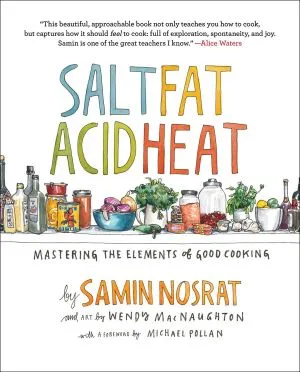
More than a cookbook, Salt, Fat, Acid, Heat is a culinary philosophy wrapped in joy, science, and art. Samin Nosrat, a chef and teacher at heart, argues that mastering these four elements—not recipes—is the true secret to good cooking.
Blending personal stories, science-based explanations, and stunning illustrations, Nosrat demystifies food in a way that empowers everyone, from beginners to professionals. The writing is warm, enthusiastic, and approachable—no ego, just passion.
Among the Top-Rated nonfiction books in food writing, this is a modern classic that’s already changed kitchens (and lives) around the world.
63. Stiff: The Curious Lives of Human Cadavers by Mary Roach
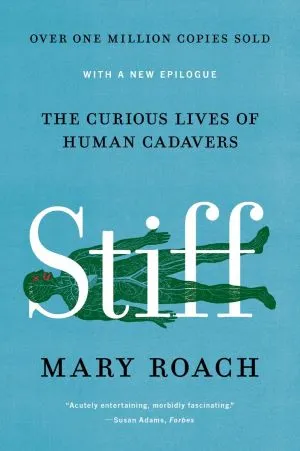
Death is typically treated with reverence or avoidance—but Mary Roach dives headfirst into it with curiosity and dark humor in Stiff. This wildly entertaining yet respectful book explores what happens to human bodies after death: from medical dissection to crash testing to composting.
Roach’s journalistic fearlessness is matched only by her gift for storytelling. She makes the macabre oddly fascinating, the grotesque oddly beautiful.
This book earns its place on any list of Most Widely Recommended Nonfiction Books for its originality, wit, and fearless exploration of the human condition—even after life ends.
62. Amusing Ourselves to Death by Neil Postman
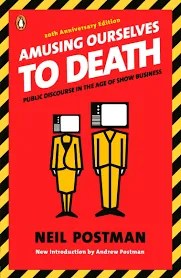
Originally published in 1985, Neil Postman’s Amusing Ourselves to Death predicted the 21st-century media landscape with chilling precision. Postman warned that as television replaced typography, we would become a society obsessed with entertainment over truth, spectacle over substance.
His central thesis—that mediums shape the message—has only grown more relevant in the age of smartphones and social media. This prescient critique remains one of the Top-Rated nonfiction books in media studies and communication.
If George Orwell imagined a dystopia of fear, Postman imagined one of distraction. And terrifyingly, he was right.
61. The Origins of Totalitarianism by Hannah Arendt
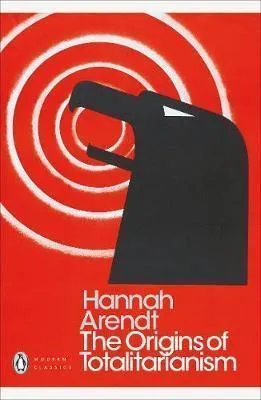
Hannah Arendt’s The Origins of Totalitarianism is a profound, unflinching examination of how authoritarian regimes come to power—and how societies allow it to happen. Drawing on the rise of Nazism and Stalinism, Arendt explores the mechanics of propaganda, mass loneliness, anti-Semitism, and the erosion of truth.
This isn’t light reading—but it’s urgent, timeless, and intellectually commanding. Arendt’s insights feel eerily current, as democratic institutions around the globe face renewed threats.
Among the 100 Best nonfiction books in political philosophy, this is required reading for anyone trying to understand—and resist—the forces of tyranny.
60. Blink by Malcolm Gladwell
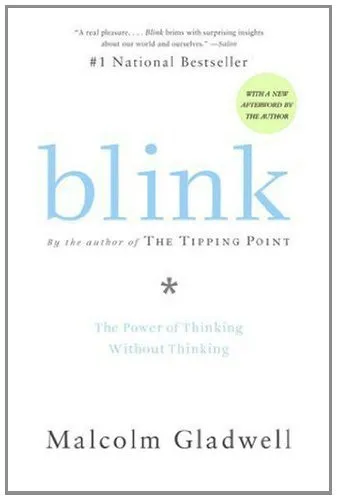
With his signature blend of storytelling and science, Malcolm Gladwell’s Blink explores the power of intuition—the kind of snap judgment we often make in the blink of an eye.
He dives into split-second decisions, gut reactions, and how our unconscious often knows more than we think.
But Blink doesn’t glorify intuition blindly; it also exposes its flaws, like bias and prejudice. Gladwell is a master of turning social science into gripping narrative, and this book is no exception. A longtime fixture among the most read nonfiction books of All Time, Blink forever changed how we think about thinking.
59. The Tipping Point by Malcolm Gladwell
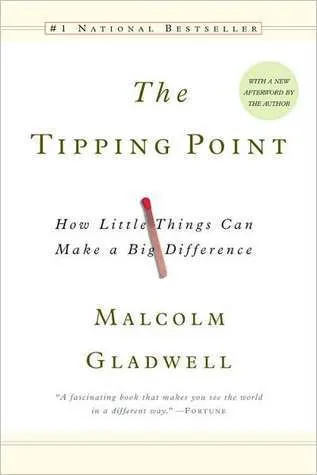
Malcolm Gladwell’s The Tipping Point explores one electrifying idea: that small changes can trigger explosive results. Using examples from fashion trends to crime waves to the rise of Hush Puppies shoes, Gladwell dissects how ideas, behaviors, and social phenomena reach a “tipping point” and spread like wildfire.
His blend of pop psychology, sociology, and storytelling made this book a cultural phenomenon—and cemented it among the most read nonfiction books of All Time. The Tipping Point didn’t just explain trends—it became one. It encourages readers to see the hidden connectors, mavens, and influencers behind every major shift in society.
58. Thinking, Fast and Slow by Daniel Kahneman
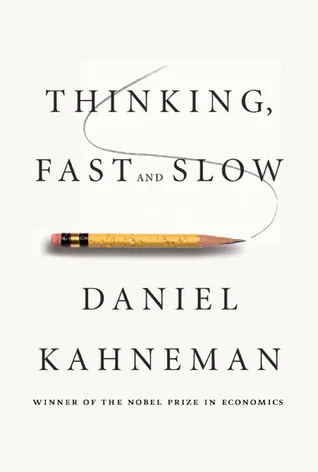
A Nobel laureate in economics, Daniel Kahneman distills a lifetime of research into how we think—and more importantly, how we fail to think—in Thinking, Fast and Slow. He introduces us to two mental systems: the intuitive, quick-thinking System 1 and the more deliberate, analytical System 2.
Through captivating examples, Kahneman reveals the cognitive biases and errors that plague our decisions, from overconfidence to loss aversion. This book is a game-changer, used by everyone from investors to policymakers. As a mainstay in the Top-Rated nonfiction canon, it helps us question our assumptions—and sharpen our intellect.
57. Freakonomics by Steven D. Levitt & Stephen J. Dubner
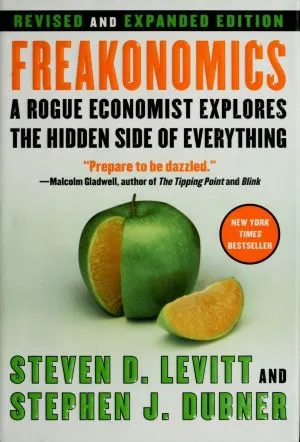
What do schoolteachers and sumo wrestlers have in common? In Freakonomics, economist Steven Levitt and journalist Stephen Dubner offer an unconventional lens on human behavior using economic theory in the most unexpected ways.
With wit and clarity, they tackle questions like: What makes a perfect parent? Why do drug dealers live with their moms? This book turned economics into a cultural sensation and redefined how data can tell a story.
A permanent fixture on Most Widely Recommended Nonfiction Books lists, Freakonomics is clever, counterintuitive, and endlessly quotable.
56. The Devil in the White City by Erik Larson
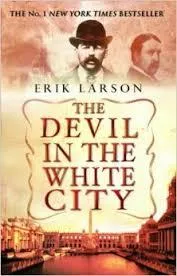
Set against the backdrop of the 1893 Chicago World’s Fair, The Devil in the White City tells two parallel stories: the visionary behind the fair’s architectural wonders, and a charming psychopath—H.H. Holmes—who used the fair to lure victims into his “Murder Castle.”
Erik Larson blends true crime with historical nonfiction, making this book read like a thriller. It’s meticulously researched, atmospherically rich, and absolutely chilling.
This hybrid storytelling has made it one of the Top-Rated nonfiction books for readers who love history that reads like fiction.
55. Bad Blood by John Carreyrou
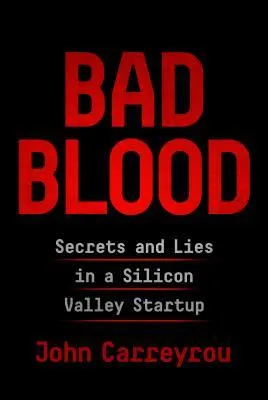
In Bad Blood, investigative journalist John Carreyrou uncovers the meteoric rise and catastrophic fall of Theranos—a biotech company once valued at \$9 billion, based entirely on a lie.
At its center: Elizabeth Holmes, a brilliant but deeply deceptive founder who promised to revolutionize blood testing.
This book is a real-time corporate thriller. With the pacing of a novel and the rigor of journalism, Carreyrou exposes how charisma and hype can obscure fraud on an epic scale. Among the most read nonfiction books of All Time in business and technology, Bad Blood is a cautionary tale for our startup-obsessed age.
54. The Splendid and the Vile by Erik Larson
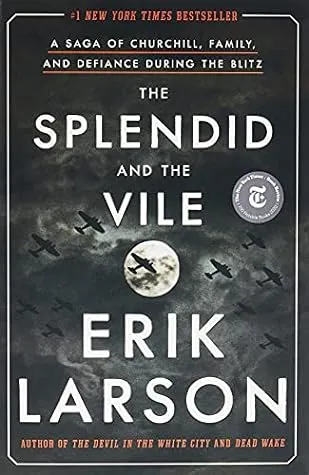
In The Splendid and the Vile, Erik Larson returns with another stunning work of narrative nonfiction—this time chronicling Winston Churchill’s first year as Prime Minister during the Blitz.
Through newly uncovered diaries, letters, and official records, Larson captures both the monumental leadership and intimate domestic life of a man holding a nation together.
Rather than mythologizing Churchill, Larson humanizes him, showing his resolve, eccentricities, and the unyielding family dynamic that surrounded him during Britain’s darkest hours.
Among the Most Widely Recommended Nonfiction Books, this one is a triumph of historical storytelling, showing that courage, like leadership, is often forged in private moments.
53. Just Mercy by Bryan Stevenson
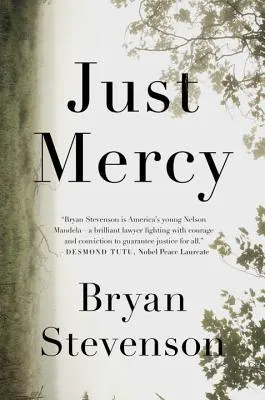
Bryan Stevenson’s Just Mercy is more than a memoir—it’s a moral awakening. As a young lawyer defending death row inmates in Alabama, Stevenson shines a light on a criminal justice system that is anything but just.
At the center of the book is Walter McMillian, a Black man wrongfully convicted of murder and sentenced to die.
Stevenson writes with quiet fury and deep empathy, not just about law, but about mercy, dignity, and systemic cruelty. Few books in recent years have done more to stir conscience and activism. Permanently embedded in the Top-Rated nonfiction canon, Just Mercy is essential reading for anyone who believes justice must be fought for, not assumed.
52. Hidden Figures by Margot Lee Shetterly
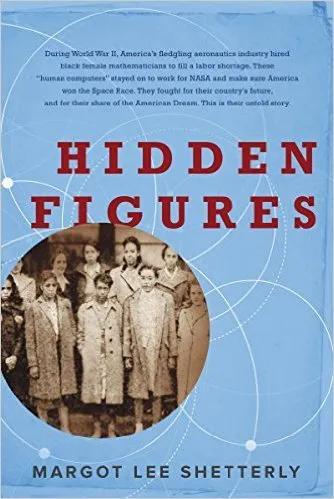
Before there were rockets in the sky, there were Black women behind the math. Hidden Figures tells the extraordinary true story of the African American women mathematicians at NASA—Katherine Johnson, Dorothy Vaughan, and Mary Jackson—whose calculations were pivotal to America’s success in the space race.
Margot Lee Shetterly combines deep historical research with narrative grace to restore these women to their rightful place in history. A standout among the 100 Best nonfiction books, Hidden Figures is a celebration of intellect, perseverance, and the unseen hands that launch nations into the future.
51. We Should All Be Feminists by Chimamanda Ngozi Adichie
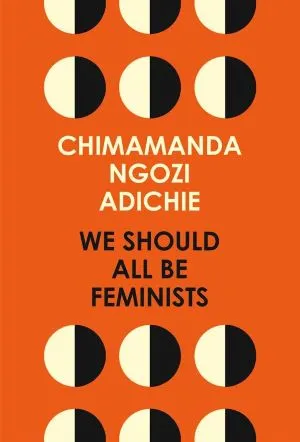
Adapted from her TED Talk, Chimamanda Ngozi Adichie’s We Should All Be Feminists is a rallying cry for gender equality that’s both deeply personal and universally resonant.
In just a few pages, Adichie dissects how patriarchy harms everyone—women and men—and why feminism should be embraced, not feared.
Her tone is clear, candid, and inviting. This isn’t an academic essay—it’s a conversation, a manifesto of hope, and a call to action. It’s one of the Most Widely Recommended Nonfiction Books on feminism for a reason: it reframes the narrative in a way that’s accessible, urgent, and beautifully human.
Top 50 Best Nonfiction
50. The Souls of Black Folk by W.E.B. Du Bois
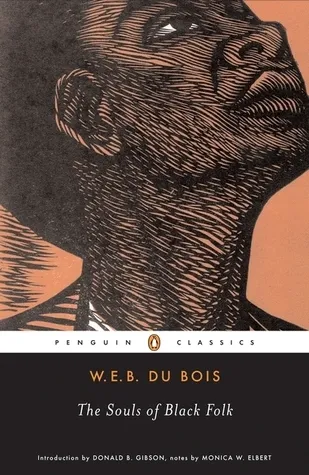
With The Souls of Black Folk, W.E.B. Du Bois gave the world one of the most profound meditations on race in American history. Published in 1903, this seminal collection of essays explores what it means to live with a “double consciousness”—to be both Black and American in a society built on systemic racism.
Du Bois combines sociology, philosophy, and personal narrative in lyrical, unforgettable prose. His ideas on race, education, and civil rights laid the intellectual foundation for the entire 20th-century Black freedom struggle.
Among the most read nonfiction books of All Time, this one is not just a book—it’s a milestone of thought.
49. The Second Sex by Simone de Beauvoir
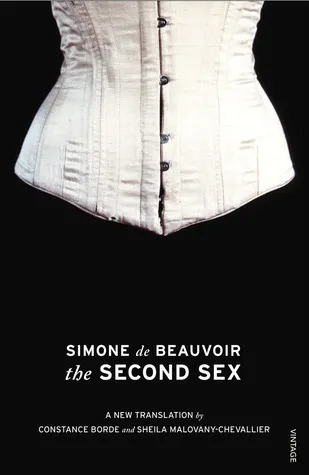
Few books have had as seismic an impact on feminist theory as Simone de Beauvoir’s The Second Sex. Published in 1949, this sweeping philosophical treatise explores what it means to be a woman in a world defined by male norms.
De Beauvoir’s bold declaration—“One is not born, but rather becomes, a woman”—challenged generations to reexamine gender, autonomy, and societal roles.
Blending existentialism, history, and personal narrative, she dismantles the myth of the eternal feminine with precision and passion. As one of the Most Widely Recommended Nonfiction Books in feminist literature, it remains as vital and urgent as ever in the fight for gender equality.
48. The Feminine Mystique by Betty Friedan
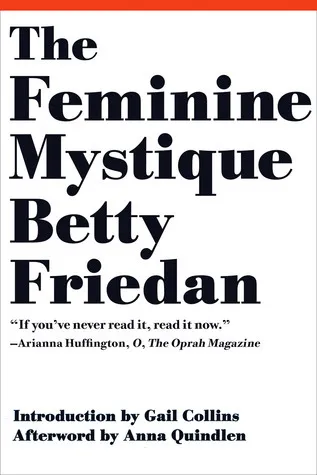
Published in 1963, The Feminine Mystique gave a voice to the nameless frustration of countless American housewives trapped in roles that stifled their ambition and identity. Betty Friedan named this “the problem that has no name,” igniting the second wave of feminism and sparking decades of social transformation.
More than a critique of 1950s domesticity, Friedan’s book is a call to action: for education, for purpose, for selfhood. It shattered the illusion that fulfillment lies solely in homemaking. Ranked among the Top-Rated nonfiction books of the 20th century, The Feminine Mystique is a rallying cry that still echoes in every modern feminist conversation.
47. Orientalism by Edward Said
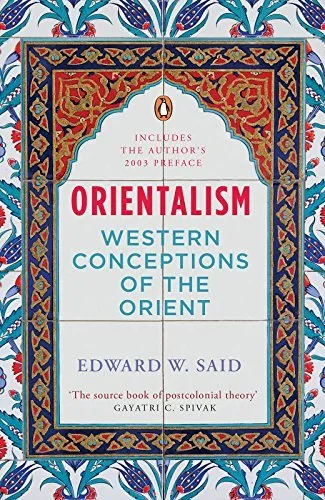
Edward Said’s Orientalism fundamentally changed how the West understands—and misrepresents—the East. In this landmark work, Said critiques the cultural framework through which Western scholars, writers, and institutions have portrayed the Middle East and Asia as exotic, inferior, and static.
Said’s thesis is clear and radical: “the Orient” is not a geographic truth but a colonial invention designed to justify domination. With incisive analysis and literary depth, this book pioneered postcolonial theory and forced academia to confront its biases.
Orientalism holds a permanent place among the most read nonfiction books of All Time, and for good reason: it exposes the politics embedded in knowledge itself.
46. The Communist Manifesto by Karl Marx & Friedrich Engels
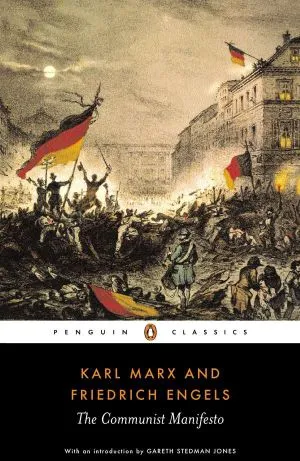
Few political documents have had such enduring influence—and such divisive reception—as The Communist Manifesto. Written in 1848, it remains one of the most widely circulated texts in modern history.
Marx and Engels offer a scathing critique of capitalism, outlining the exploitation of labor and the inevitable struggle between classes.
While many see it as a radical blueprint, others read it as a sobering reflection of historical cycles. Its language is urgent, its ideology incendiary, and its legacy undeniable. As a cornerstone of Top-Rated nonfiction in political theory, this brief but powerful work continues to inspire, provoke, and polarize readers across the globe.
45. The Prince by Niccolò Machiavelli

Written in the early 16th century, The Prince is perhaps the most misunderstood political treatise of all time. Niccolò Machiavelli’s brutally pragmatic advice for rulers—advocating cunning, deceit, and calculated cruelty—earned him a reputation for amorality. But beneath the controversy lies a deep understanding of power, human nature, and political survival.
Machiavellian has become synonymous with manipulation, yet The Prince endures because it speaks to realpolitik with startling clarity. Whether studied as a manual or a mirror, this book belongs firmly among the 100 Best nonfiction books, offering timeless insights into leadership in both politics and life.
44. The Republic by Plato
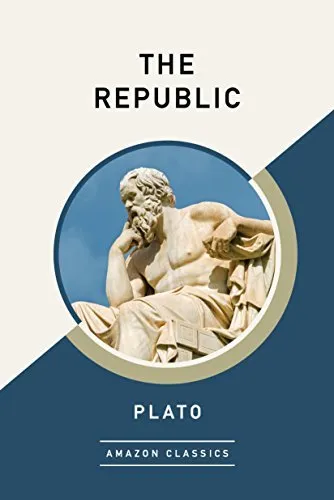
At over two thousand years old, The Republic remains one of the most enduring and essential works of philosophy. Written as a dialogue between Socrates and his students, Plato explores justice, the ideal state, the nature of reality, and the purpose of education and leadership.
The allegory of the cave, the philosopher-king, and the tripartite soul are just a few of the ideas that continue to resonate in political theory, ethics, and psychology. Whether you agree with Plato’s conclusions or not, his questions are timeless.
As a pillar of the 100 Best nonfiction books, The Republic is required reading for anyone interested in what it means to build a just society.-
43. On Liberty by John Stuart Mill
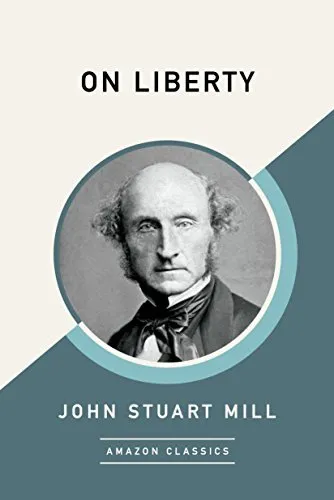
In On Liberty, John Stuart Mill offers a passionate defense of individual freedom against the tyranny of the majority and the encroachment of the state. Published in 1859, this elegant essay argues that a free society must protect expression, thought, and lifestyle choices—even unpopular ones.
Mill’s logic is both radical and restrained. His plea for open discourse and personal sovereignty laid the groundwork for modern liberalism and civil rights. Still widely cited in legal and ethical debates today, On Liberty remains a cornerstone of Most Widely Recommended Nonfiction Books in political philosophy. Its message: the freedom to think and be is non-negotiable.
42. The Road to Serfdom by Friedrich Hayek
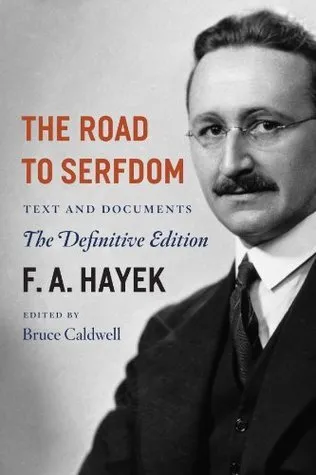
Friedrich Hayek’s The Road to Serfdom is a chilling warning against the dangers of centralized economic planning. Written during World War II, the book argues that even well-intentioned moves toward socialism can gradually lead to authoritarianism and the loss of personal freedoms.
Hayek’s critique isn’t ideological rage—it’s reasoned, well-supported, and unflinchingly direct. His ideas helped shape the policies of free-market champions like Margaret Thatcher and Ronald Reagan, and they remain fiercely debated in today’s political arena. As one of the Top-Rated nonfiction books in economic and political thought, The Road to Serfdom stands as a bold defense of liberty over control.
41. Capital in the Twenty-First Century by Thomas Piketty
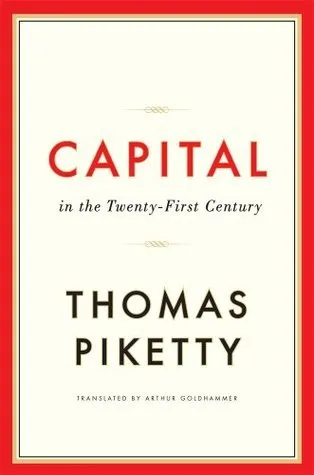
When Capital in the Twenty-First Century was released in 2013, it rocked the global conversation on wealth inequality. French economist Thomas Piketty uses massive troves of data to argue that capitalism, left unchecked, inevitably leads to the concentration of wealth in the hands of a few.
What makes this book groundbreaking isn’t just the economic models—it’s the storytelling. Piketty places economics in its historical and political context, making it deeply accessible.
Among the most read nonfiction books of All Time in economics, this is essential reading for understanding today’s rising inequality—and what to do about it.
40. The Wealth of Nations by Adam Smith
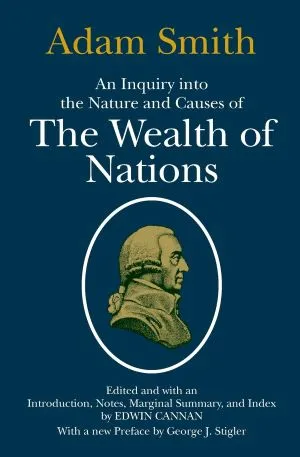
Published in 1776, Adam Smith’s The Wealth of Nations is the cornerstone of classical economics. With unmatched clarity and moral inquiry, Smith explains the mechanics of free markets, the invisible hand, division of labor, and the importance of competition in generating prosperity.
But Smith wasn’t a cheerleader for greed—he was a philosopher concerned with the moral consequences of capitalism. His work laid the foundation for modern economics and still serves as a reference point for economic policy debates today.
Universally regarded as one of the Top-Rated nonfiction books of all time, The Wealth of Nations is the economic Bible for both thinkers and statesmen.
39. The Black Swan by Nassim Nicholas Taleb
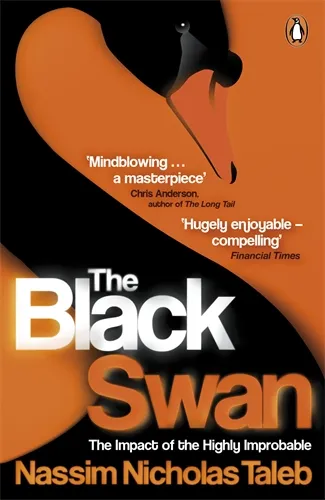
In The Black Swan, Nassim Nicholas Taleb introduces one of the most important ideas in modern risk theory: rare, unpredictable events—black swans—shape our world far more than we care to admit. From financial crashes to revolutionary tech breakthroughs, Taleb argues that most of what matters is what we didn’t see coming.
This isn’t just a book about probability—it’s about epistemology, psychology, and intellectual humility. Taleb’s tone is often confrontational, but his insights are razor-sharp.
Among the Top-Rated nonfiction books in economics, philosophy, and systems thinking, The Black Swan is a mind-bending read that forces you to rethink how you interpret everything from history to success.
38. Why Nations Fail by Daron Acemoglu and James A. Robinson
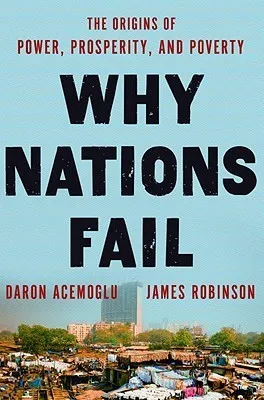
Why Nations Fail is a compelling and intellectually provocative entry in the 100 Best Nonfiction Books list. Written by Daron Acemoglu and James A. Robinson, it explores a timeless question: why do some countries thrive while others remain mired in poverty?
The authors argue, with persuasive clarity, that inclusive political and economic institutions—not geography, culture, or natural resources—are the real engines of prosperity. Conversely, extractive institutions, which concentrate power and wealth among elites, breed inequality and stagnation.
What sets this Top-Rated Nonfiction apart is its fusion of historical narrative with economic insight, from the Roman Empire to modern-day Zimbabwe. As one of the Most Widely Recommended Nonfiction Books, it offers a fresh lens for understanding global inequality.
For anyone drawn to the most read nonfiction books of all time, Why Nations Fail is more than academic—it’s a mirror held up to the world’s enduring power struggles.
37. Good to Great by Jim Collins
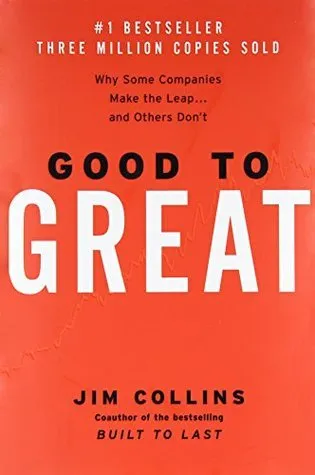
What separates good companies from great ones? Jim Collins set out to find the answer—and the result was Good to Great, one of the most influential business books ever written. Using data and case studies, Collins identifies key traits of companies that made the leap and sustained success.
Concepts like “Level 5 Leadership,” the “Hedgehog Concept,” and the “Flywheel Effect” have become staples in corporate boardrooms and startup incubators alike. What makes this book enduring is its focus on discipline, humility, and purpose. A certified classic among the Most Widely Recommended Nonfiction Books in business, Good to Great remains a roadmap to long-term excellence.
36. A Short History of Nearly Everything by Bill Bryson (2003)
Bill Bryson’s A Short History of Nearly Everything is nothing short of a love letter to science—and an ode to human curiosity. With wit, warmth, and wide-eyed wonder, Bryson guides the reader through a crash course in cosmology, chemistry, geology, biology, and physics. But this is no dry textbook; it’s an invitation to marvel at the improbable, chaotic, and often hilarious story of how we—and the universe—got here.
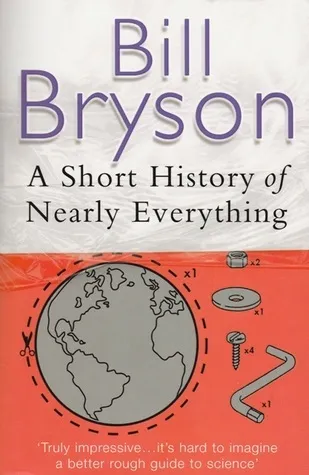
What elevates this book among the Top-Rated Nonfiction titles of the 21st century is Bryson’s unique ability to make complex concepts feel human.
He doesn’t just teach us about atoms or extinction—he tells us about the eccentric scientists behind the theories, the near-misses of history, and the poetic improbability of life itself. This book makes you feel smaller and more significant all at once.
As one of the most read nonfiction books of All Time, it’s both humbling and thrilling—a reminder that understanding the world doesn’t diminish its magic, but enhances it. Bryson gives us science as it was meant to be felt: intimate, chaotic, beautiful.
35. The Innovator’s Dilemma by Clayton M. Christensen
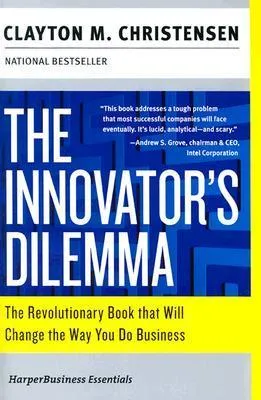
In The Innovator’s Dilemma, Harvard professor Clayton Christensen coined a now-ubiquitous term: disruptive innovation. The book explores how successful companies often fail—not because they’re poorly run, but because they’re too focused on what made them successful in the first place.
Christensen reveals how startups with inferior technology can slowly topple industry giants by tapping into overlooked or emerging markets. This book shook up the business world and became one of the Most Widely Recommended Nonfiction Books in management strategy.
If you want to understand why even Apple and IBM are vulnerable, The Innovator’s Dilemma is essential reading.
34. The Righteous Mind by Jonathan Haidt
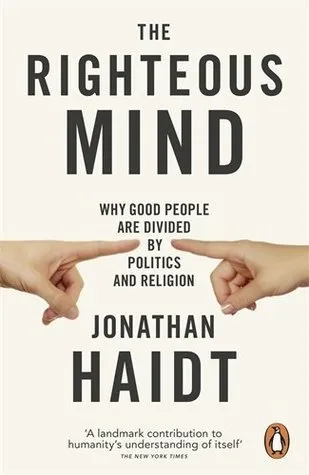
In The Righteous Mind, social psychologist Jonathan Haidt asks a powerful question: why do good people disagree so deeply about politics and religion? His answer lies in moral psychology. Haidt’s research reveals that our values are shaped not just by logic, but by intuition and evolutionary wiring—what he calls the “elephant” and the “rider.”
By mapping moral foundations across cultures and political ideologies, Haidt creates a framework for understanding, not condemning, those who think differently. It’s a deeply unifying book in a divided age.
Among the Most Widely Recommended Nonfiction Books in ethics and political psychology, The Righteous Mind is essential for anyone seeking to engage—not rage—across ideological lines.
33. Gödel, Escher, Bach: An Eternal Golden Braid by Douglas Hofstadter
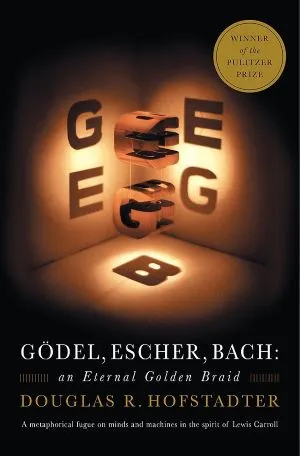
A cult classic of intellectual exploration, Gödel, Escher, Bach is part math, part music, part art—and entirely brilliant.
Douglas Hofstadter weaves together the logic puzzles of Kurt Gödel, the impossible geometry of M.C. Escher, and the recursive genius of Johann Sebastian Bach into a treatise on consciousness, systems, and self-reference.
Yes, it’s dense—but also playful, imaginative, and unexpectedly human. Hofstadter asks what it means to be a self, and whether machines can ever truly think.
Among the Top-Rated nonfiction books in cognitive science and philosophy, GEB is a dazzling, mind-bending journey that rewards patient and curious readers.
32. Team of Rivals by Doris Kearns Goodwin
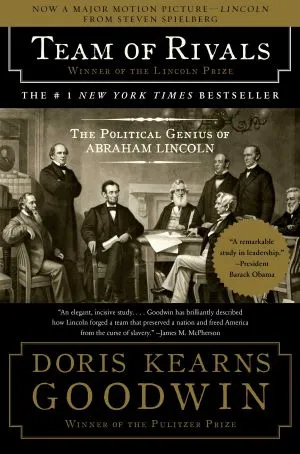
Team of Rivals is more than a biography of Abraham Lincoln—it’s a masterclass in leadership, emotional intelligence, and political wisdom. Pulitzer Prize-winner Doris Kearns Goodwin tells the story of how Lincoln appointed his fiercest critics to his cabinet and, through empathy and strategic vision, turned them into allies.
The book’s lessons extend far beyond 19th-century America. In an age where politics is often reduced to partisanship, Team of Rivals shows the power of unity, humility, and listening. As one of the most read nonfiction books of All Time, this is the definitive text for anyone seeking to lead with both strength and grace.
31. Alexander Hamilton by Ron Chernow
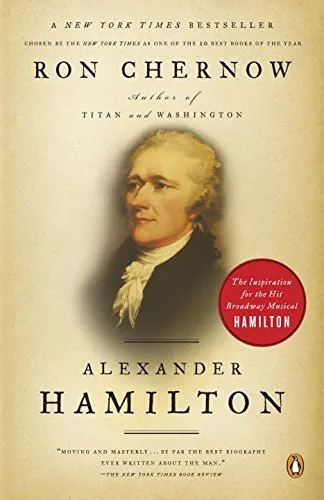
Before it inspired a Broadway phenomenon, Ron Chernow’s Alexander Hamilton was a literary force in its own right.
This epic biography reclaims one of America’s most misunderstood Founding Fathers, painting a vivid portrait of a penniless immigrant who rose to shape the nation’s financial system and political structure.
Chernow’s writing is dynamic, detailed, and deeply human. He reveals Hamilton not just as a statesman, but as a flawed, fiery, and brilliant figure whose legacy continues to reverberate. A staple in the Top-Rated nonfiction biographies, Alexander Hamilton resurrects history with precision and passion.
30. The Making of the Atomic Bomb by Richard Rhodes
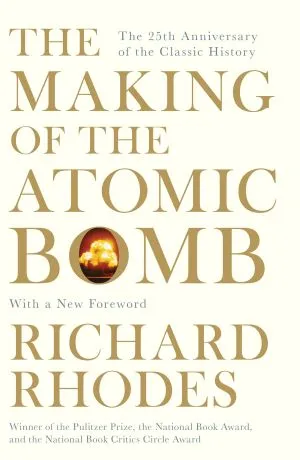
Richard Rhodes’s Pulitzer Prize-winning The Making of the Atomic Bomb is the definitive account of how humanity unlocked the most destructive force in nature. Rhodes traces the story from the discovery of nuclear fission to the bombings of Hiroshima and Nagasaki, weaving together science, politics, and human drama.
This book is not just about physics—it’s about morality, ambition, and the tragic cost of knowledge. It’s meticulously researched and hauntingly written.
Among the Most Widely Recommended Nonfiction Books in history and science, The Making of the Atomic Bomb is both a monument to genius and a meditation on responsibility.
29. The Power Broker by Robert A. Caro
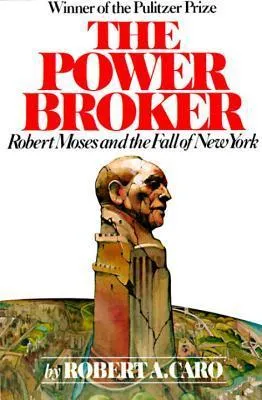
If ever a biography read like an epic tragedy, it’s The Power Broker. Robert Caro’s Pulitzer-winning study of Robert Moses—New York’s unelected master planner—exposes how one man, through manipulation and mastery of bureaucratic levers, shaped the physical and social contours of an entire metropolis.
Caro’s prose is meticulous, immersive, and unflinching. He doesn’t just tell Moses’s story; he reveals how power works in the modern world. The highways, parks, and bridges of New York become metaphors for ambition, arrogance, and disenfranchisement. One of the Most Widely Recommended Nonfiction Books in political biography, The Power Broker is an indispensable lens for viewing the infrastructure of power itself.
28. Guns, Germs, and Steel by Jared Diamond
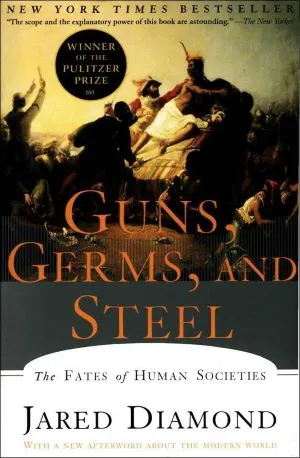
So vital it warrants a second inclusion, Guns, Germs, and Steel continues to ignite debate years after publication. Jared Diamond’s thesis—that geographic and environmental factors, not racial or cultural superiority, explain why some societies came to dominate others—shakes the foundation of traditional historical narratives.
With sweeping interdisciplinary reach, Diamond examines agriculture, disease, technology, and conquest, offering a unifying theory of global inequality.
It’s as provocative as it is enlightening. Ranked highly among both science and history books, it remains a cornerstone in the Top-Rated nonfiction canon and a touchstone for understanding the deep patterns of human development.
27. Sapiens: A Brief History of Humankind by Yuval Noah Harari
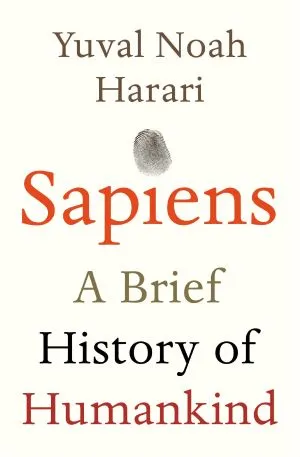
In Sapiens, Yuval Noah Harari compresses 70,000 years of human history into a fast-paced, deeply provocative narrative.
With sweeping vision, he explores how Homo sapiens rose to dominate the earth, built civilizations, invented religion and money, and now teeters at the edge of post-humanism.
Harari’s ability to connect anthropology, evolutionary biology, and political theory makes this one of the Most Widely Recommended Nonfiction Books of the 21st century. Sapiens doesn’t just recount history—it challenges everything you thought you knew about it. A true mind-expander.
26. A Brief History of Time by Stephen Hawking
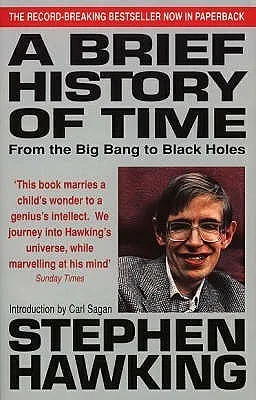
Few books have made cosmology feel so awe-inspiring—and so accessible. In A Brief History of Time, Stephen Hawking tackles the biggest questions of existence: Where did the universe come from? What is time? Is there a beginning or an end? And, perhaps, is there a god?
With clarity and humility, Hawking guides us through black holes, quantum theory, and the search for a unified “theory of everything.” Despite its deep scientific roots, the book remains readable, even poetic.
Still among the most read nonfiction books of All Time, it turns the cosmos into a place of wonder, not just numbers.
25. A People’s History of the United States by Howard Zinn
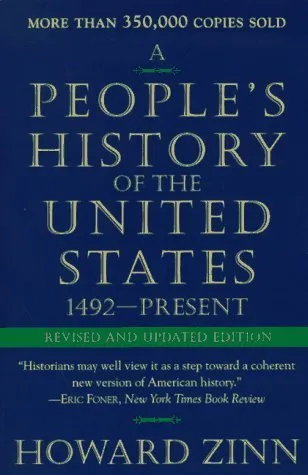
Howard Zinn flips the script in A People’s History of the United States, retelling American history not from the perspective of presidents and generals, but from the voices of those often erased: the working class, enslaved people, Indigenous communities, and dissidents.
With righteous urgency, Zinn critiques imperialism, capitalism, and nationalism, offering a counter-narrative to traditional textbooks. Loved and loathed, this book is undeniably influential.
A pillar of Top-Rated nonfiction in both education and activism, A People’s History urges readers to question, to listen, and to resist the comfort of one-sided history.
24. The Structure of Scientific Revolutions by Thomas S. Kuhn
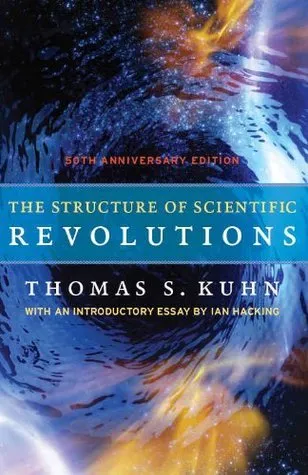
In The Structure of Scientific Revolutions, Thomas Kuhn redefined how we think about science—not as a steady, cumulative march toward truth, but as a series of transformative paradigm shifts. He coined terms like “normal science” and “paradigm shift,” concepts now ingrained in both academia and pop culture.
Kuhn’s thesis is as elegant as it is disruptive: science doesn’t progress linearly, it evolves through revolutions, where old models collapse and new ones take their place.
As one of the Most Widely Recommended Nonfiction Books in scientific philosophy, this book has shaped disciplines far beyond physics, from psychology to economics to sociology. It’s nothing short of revolutionary.
23. The Selfish Gene by Richard Dawkins
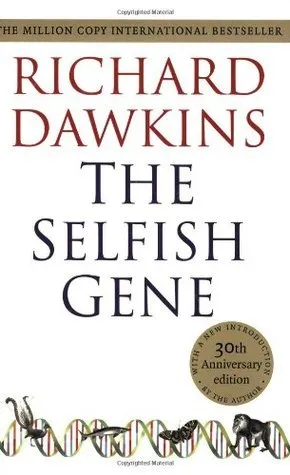
In The Selfish Gene, evolutionary biologist Richard Dawkins reframes natural selection through the lens of genes as the central unit of evolution. His core idea? Organisms are mere “survival machines” built to propagate DNA. It was controversial, bold, and utterly game-changing.
Dawkins didn’t just explain evolution—he transformed it into a compelling narrative about competition, cooperation, and the illusion of altruism. He also introduced the term “meme,” now central to internet culture. Among the Top-Rated nonfiction books in science, The Selfish Gene is both deeply technical and strikingly readable. It’s a biological manifesto that alters how we view life itself.
22. On the Origin of Species by Charles Darwin
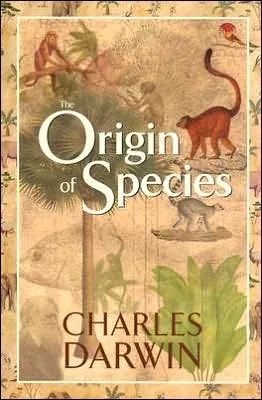
Few books have reshaped the world more profoundly than On the Origin of Species. In it, Charles Darwin presents his theory of evolution by natural selection, forever changing how we understand life on Earth. His meticulous observations, drawn from years of travel and study, replaced divine design with a model based on gradual change and adaptation.
Darwin’s prose is methodical but deeply humane. He doesn’t just argue a point—he builds a new worldview. As one of the most read nonfiction books of All Time, Origin is not just a scientific text—it’s a seismic moment in human thought.
21. Man’s Search for Meaning by Viktor E. Frankl
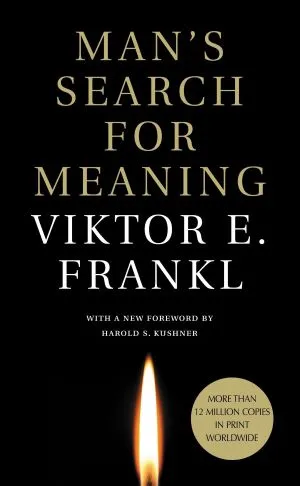
Man’s Search for Meaning is part Holocaust memoir, part existential philosophy—and entirely life-changing. Psychiatrist Viktor Frankl recounts his years in Nazi concentration camps, but rather than focus solely on suffering, he explores how meaning can be found in the midst of horror.
His logotherapy posits that our deepest need is not pleasure or power, but purpose. This quiet, devastating book offers profound psychological and spiritual insight.
Among the Top-Rated nonfiction works on resilience, it is universally cited in discussions on trauma, healing, and hope. Frankl doesn’t just tell us how to survive—he shows us how to live.
Top 20 Best Nonfictions
20. The Autobiography of Benjamin Franklin by Benjamin Franklin
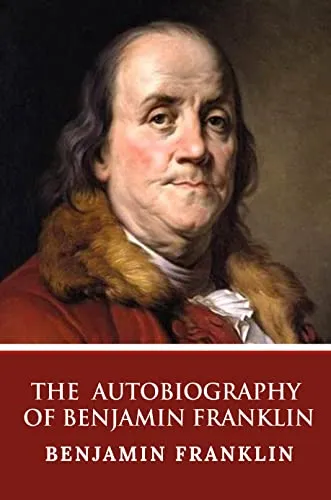
More than a founding document of a life, The Autobiography of Benjamin Franklin is an American classic that offers practical wisdom, self-improvement strategies, and an insider view of a brilliant polymath’s rise from poverty to prominence.
Franklin shares his routines, virtues, and failures with wit and candor. He doesn’t boast—he instructs, in the way a mentor might. The book’s emphasis on personal development, civic responsibility, and rational thought makes it timeless.
A permanent fixture in the Most Widely Recommended Nonfiction Books, it’s essential not only for history buffs but for anyone aspiring to build a meaningful, examined life.
19. The Story of My Experiments with Truth by Mahatma Gandhi
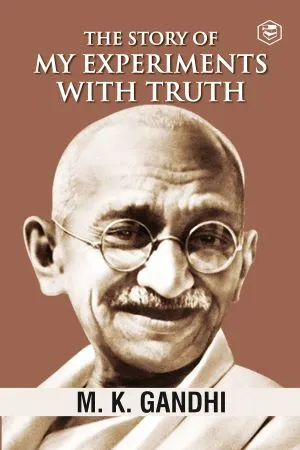
More than a memoir, The Story of My Experiments with Truth is an act of moral introspection. Written in simple, direct prose, Gandhi traces his life from childhood through law school, racial awakening in South Africa, and ultimately his role in India’s independence movement. But this is no self-glorification—it’s an open journal of spiritual experimentation.
Gandhi writes of his quest for satyagraha (truth-force), nonviolence, dietary discipline, and humility, inviting readers to observe a man relentlessly refining himself.
A touchstone among the Top-Rated nonfiction books on ethics and activism, this work remains an intimate, honest guide for those striving to live by principle over power.
18. Long Walk to Freedom by Nelson Mandela
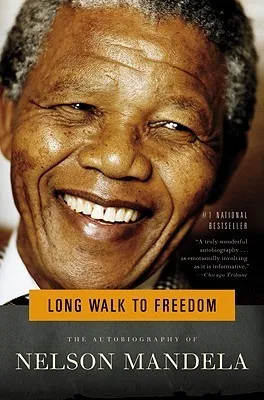
Long Walk to Freedom chronicles one of the most extraordinary lives of the 20th century. Nelson Mandela recounts his journey from rural herdsman to anti-apartheid revolutionary, from political prisoner to President of South Africa.
Through decades of pain, imprisonment, and perseverance, he never abandoned his faith in justice or in reconciliation.
Mandela’s voice is dignified and wise, never bitter. This is not just a political memoir—it’s a meditation on leadership, forgiveness, and the cost of freedom. Among the most read nonfiction books of All Time, Long Walk to Freedom remains a testament to the power of grace under oppression.
17. The Autobiography of Malcolm X by Malcolm X & Alex Haley
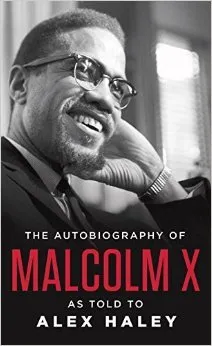
Few autobiographies are as gripping, complex, or transformative as The Autobiography of Malcolm X. Written with journalist Alex Haley, the book traces Malcolm’s metamorphosis—from troubled youth to incarcerated thief to firebrand minister to a man awakened by pilgrimage and dialogue.
His story is raw, intense, and ultimately redemptive. Malcolm challenges the reader as much as he challenges the system. The book is not just about Black identity—it’s about human awakening.
As a fixture on Top-Rated nonfiction lists in race, politics, and religion, this is an unflinching portrait of self-reinvention and moral conviction.
16. I Know Why the Caged Bird Sings by Maya Angelou
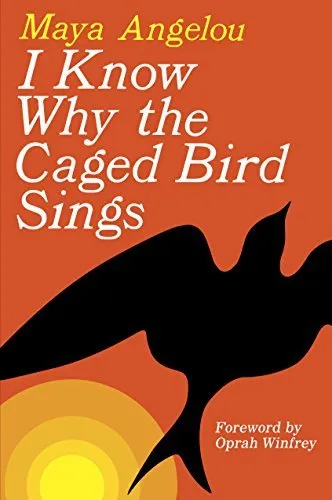
Maya Angelou’s debut memoir is a poetic, heart-wrenching exploration of Black girlhood in America. I Know Why the Caged Bird Sings recounts her early life—from trauma and silence to artistic awakening and the forging of voice through language.
Angelou’s writing is lyrical and intimate, wrapping beauty around pain. She elevates memory into literature and personal suffering into collective strength.
A cornerstone of modern memoir and Black literature, this book stands tall among the Most Widely Recommended Nonfiction Books for its literary brilliance and emotional truth.
15. Educated by Tara Westover
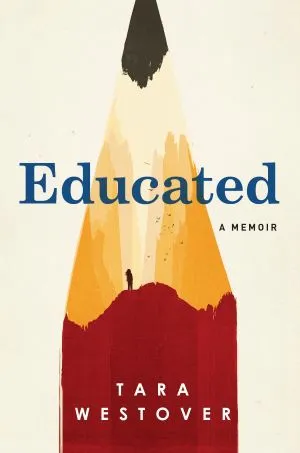
In Educated, Tara Westover recounts growing up in a survivalist, isolationist Mormon household in rural Idaho, where she received no formal education until she taught herself enough to attend college. What follows is a breathtaking odyssey of intellectual and emotional self-liberation.
Her prose is lyrical and precise; her journey harrowing yet hopeful. Educated is not just about learning in the academic sense—it’s about awakening from dogma, reclaiming identity, and forging a life outside the lines drawn for you. One of the Top-Rated nonfiction books in recent memory, it’s a triumph of personal agency and resilience.
14. The Glass Castle by Jeannette Walls
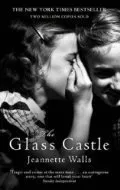
The Glass Castle is a memoir that reads like a fable of dysfunction and resilience. Jeannette Walls recounts her upbringing in a deeply troubled yet wildly imaginative family—led by a brilliant but alcoholic father and an artistically gifted, neglectful mother. Homelessness, hunger, and instability marked her childhood, yet she writes with startling clarity and compassion.
Walls doesn’t demonize her parents—she humanizes them. Her journey from scavenging for food to becoming a New York journalist is both heartbreaking and empowering. A cornerstone among Top-Rated nonfiction, The Glass Castle is a masterclass in turning chaos into literature—and pain into strength.
13. The Gulag Archipelago by Aleksandr Solzhenitsyn
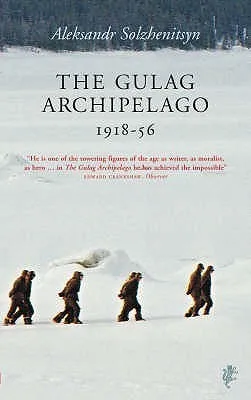
More than a book, The Gulag Archipelago is a monument to truth. Based on Solzhenitsyn’s own imprisonment and hundreds of testimonies, it reveals the terrifying machinery of the Soviet labor camp system.
With literary force and moral courage, he documents the arrests, tortures, and soul-crushing dehumanization endured by millions under Stalinist rule.
Solzhenitsyn doesn’t write with rage—he writes with purpose. His prose is cutting yet controlled, analytical yet personal. As one of the most read nonfiction books of All Time in human rights literature, this work cracked the illusion of Soviet utopia and still stands as a towering indictment of totalitarianism.
12. Night by Elie Wiesel
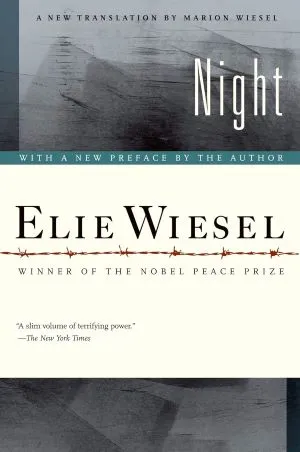
Few books capture the horror of the Holocaust as intimately and poetically as Elie Wiesel’s Night. A teenager when he was sent to Auschwitz, Wiesel survived the camps but lost his family, faith, and former self in the process. This memoir is his elegy to that suffering—and to those who didn’t survive.
With haunting simplicity, Night compresses unimaginable pain into a slim volume that forever marks the reader. It’s not just a testimony of atrocity, but a meditation on silence, memory, and moral failure. As one of the Most Widely Recommended Nonfiction Books ever written, it is a sacred text in the literature of witness.
11. The Fire Next Time by James Baldwin
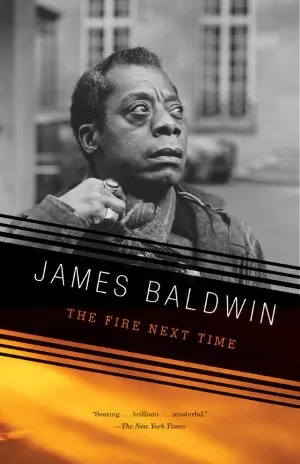
The Fire Next Time is James Baldwin at his most prophetic and profound. Written as a pair of essays—one addressed to his young nephew, the other to a nation in racial turmoil—it is a searing exploration of Black identity, Christianity, white supremacy, and the American soul.
Baldwin’s language is as sharp as it is lyrical. He dissects race not just as a social issue but as a spiritual crisis. His voice remains uncannily relevant, his moral clarity unimpeachable.
This book continues to burn on syllabi and bookshelves alike as one of the Top-Rated nonfiction titles on race, justice, and the cost of love.
10 Best Nonfictions
10. The Year of Magical Thinking by Joan Didion
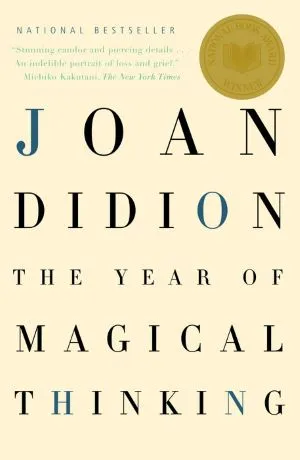
In The Year of Magical Thinking, Joan Didion offers one of the most elegant and devastating meditations on grief ever written. After the sudden death of her husband, writer John Gregory Dunne, and the near-death of their daughter, Didion is plunged into a surreal world of memory, ritual, and denial.
Her prose is spare but searing—emotionally restrained, yet devastatingly raw. Didion doesn’t sentimentalize loss; she analyzes it, observes it, and in doing so, dignifies every form of sorrow.
Among the Most Widely Recommended Nonfiction Books on mourning and resilience, The Year of Magical Thinking is as close as literature gets to an open wound.
9. The Better Angels of Our Nature: Why Violence Has Declined by Steven Pinker
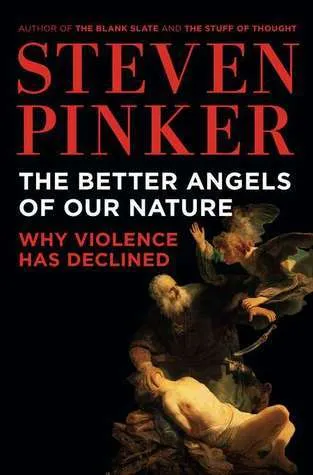
In The Better Angels of Our Nature, cognitive scientist Steven Pinker makes an audacious, data-backed claim: contrary to popular belief, we are living in the most peaceful era in human history. Across centuries and continents, violence—be it war, homicide, or domestic abuse—has been steadily declining. The reasons? A convergence of social, political, and cognitive evolutions.
Pinker meticulously unpacks historical trends, cognitive psychology, and cultural shifts that have nudged us toward empathy, reason, and cooperation. His thesis doesn’t minimize today’s suffering; instead, it reframes our progress through the long lens of history. He argues that institutions like democracy, literacy, and trade are among the “better angels” that have civilized human impulses.
This deeply analytical and morally ambitious work has sparked global conversations and earned its place among the 100 Best Nonfiction Books for its scope and courage. As one of the Most Widely Recommended Nonfiction Books in sociology and ethics, Pinker’s magnum opus isn’t just about celebrating peace—it’s about understanding how we got here, so we can protect—and extend—it.
8. In Cold Blood by Truman Capote
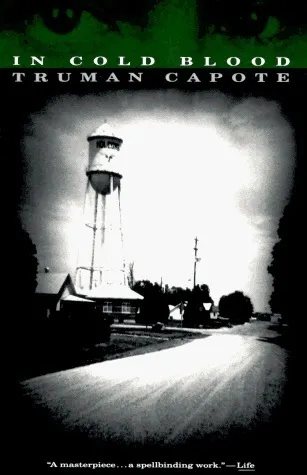
In Cold Blood was revolutionary—not just for its content, but for the way it blurred the line between fiction and nonfiction. Truman Capote spent years investigating the 1959 murder of a Kansas family, crafting a narrative that reads like a novel but stays grounded in fact.
Capote’s prose is atmospheric and meticulous, portraying both the killers and the victims with chilling detail. This book launched the true crime genre and challenged assumptions about storytelling and objectivity.
A staple in the Top-Rated nonfiction canon, In Cold Blood is as much about crime as it is about obsession, empathy, and the cost of curiosity.
7. Silent Spring by Rachel Carson
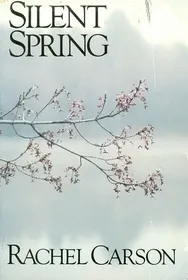
Rachel Carson’s Silent Spring is arguably the most important environmental book ever written. With poetic precision and scientific rigor, she exposed the devastating effects of DDT and other pesticides on ecosystems, sparking a nationwide reckoning that led to policy change and the birth of the environmental movement.
Carson was vilified by industry but vindicated by history. Her voice—calm, firm, and morally driven—changed the way we view our relationship with nature. As one of the Most Widely Recommended Nonfiction Books in environmental science, Silent Spring isn’t just a book; it’s a call to conscience.
6. The Immortal Life of Henrietta Lacks by Rebecca Skloot
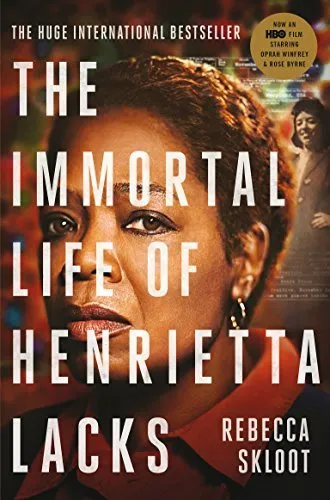
The Immortal Life of Henrietta Lacks uncovers a story that straddles science, ethics, race, and family. Henrietta Lacks was a poor Black tobacco farmer whose cancer cells—taken without her consent in 1951—became the foundation for countless medical breakthroughs. Her family, however, remained in the dark for decades.
Rebecca Skloot masterfully blends biography, investigative journalism, and scientific history, giving Henrietta the dignity she was denied. This book confronts the uncomfortable truths of medical racism and ownership of the body.
Among the Top-Rated nonfiction works of the last two decades, it’s a poignant, necessary reckoning with science and humanity.
5. Outliers by Malcolm Gladwell
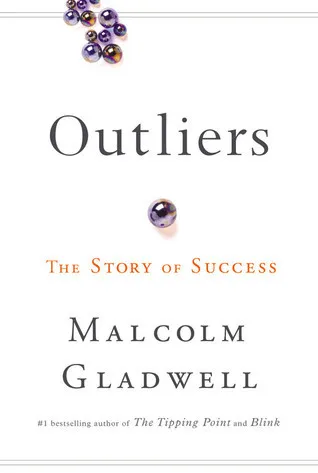
In Outliers, Malcolm Gladwell challenges the myth of individual genius. Success, he argues, is not just about talent or hard work, but context—timing, cultural background, opportunity, and practice. With compelling anecdotes and sharp analysis, he redefines what it means to be “exceptional.”
The 10,000-hour rule, cultural legacies, and the hidden advantages of upbringing are all explored with Gladwell’s trademark storytelling prowess. A modern classic in the Most Widely Recommended Nonfiction Books, Outliers is as empowering as it is provocative, reminding us that greatness is rarely a solo act.
4. The Emperor of All Maladies by Siddhartha Mukherjee
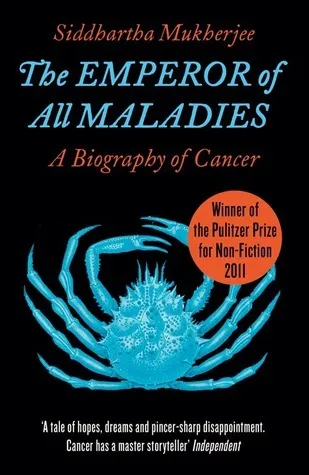
Subtitled A Biography of Cancer, Siddhartha Mukherjee’s The Emperor of All Maladies turns the most feared disease into a character—one with a long, complex, and very human history.
From ancient times to modern genetics, Mukherjee chronicles our evolving battle with cancer through gripping narratives of discovery, despair, and perseverance.
Part memoir, part scientific epic, the book is exquisitely written and emotionally resonant. Mukherjee, both a doctor and a poet at heart, brings clarity to the complex and compassion to the clinical.
Among the Top-Rated nonfiction books in medical history, this Pulitzer Prize winner reminds us that science is as much about humanity as it is about data.
3. The Warmth of Other Suns by Isabel Wilkerson
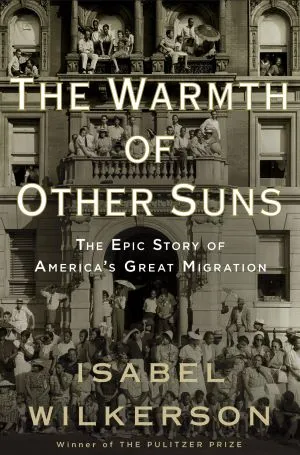
The Warmth of Other Suns is the monumental story of the Great Migration—the mass exodus of six million Black Americans from the Jim Crow South to northern and western cities. Isabel Wilkerson weaves a tapestry of voices, focusing on three individuals whose lives were transformed by this movement.
With the narrative depth of a novel and the rigor of a historian, Wilkerson documents systemic racism, resilience, and the search for dignity. Her prose glows with empathy and insight.
A landmark work in American history and sociology, this book is unquestionably one of the Most Widely Recommended Nonfiction Books of the 21st century. It’s history that breathes.
2. The Sixth Extinction by Elizabeth Kolbert
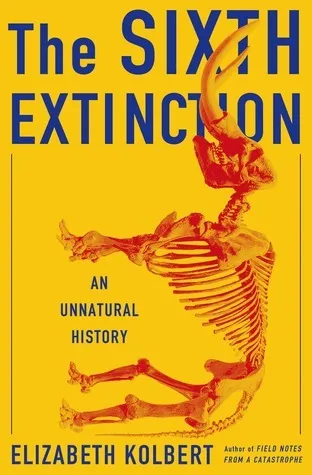
Elizabeth Kolbert’s The Sixth Extinction delivers a sobering message: we are living through a mass extinction event—caused not by meteors or ice ages, but by humans. With precision and urgency, Kolbert explores how climate change, habitat destruction, and invasive species are driving this unprecedented collapse of biodiversity.
She blends on-the-ground reporting with scientific analysis, making the science both accessible and emotionally impactful. This isn’t environmental alarmism; it’s a meticulously researched elegy for the natural world. As one of the Top-Rated nonfiction books in environmental science, The Sixth Extinction is a warning and a wake-up call.
1. The Diary of Anne Frank by Anne Frank
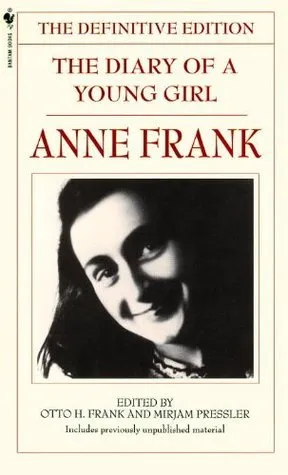
Topping the list, rightfully, is The Diary of Anne Frank—a book that has moved generations and stands as one of the most enduring works of nonfiction ever written. Though Anne’s life was brutally cut short, her words remain eternal: filled with longing, laughter, wisdom, and hope.
Her diary is more than a chronicle of war; it’s a mirror of adolescence, a meditation on courage, and a sacred reminder of what is lost when hatred is allowed to flourish. As the most read nonfiction book of All Time, The Diary of Anne Frank transcends genre and era. It is not only required reading—it is soul-required reading.
Conclusion
This journey through the Top 100 Best Nonfiction Books reveals more than a ranking—it reflects the evolution of human consciousness, the record of suffering and survival, and the brilliance of minds determined to illuminate the world. Whether you’re drawn to science, politics, memoir, or philosophy, each of these Top-Rated nonfiction works offers insight not just into facts, but into what it means to be alive.
